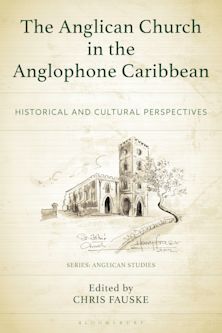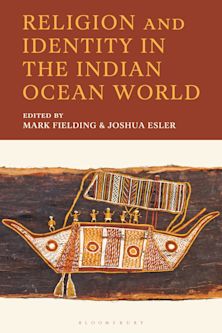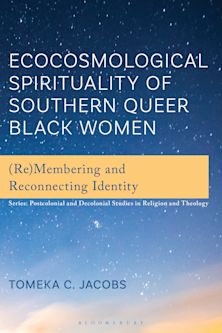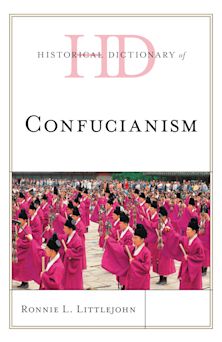- Home
- ACADEMIC
- Religious Studies
- Religious Studies - Other
- Handbook of Early Christianity
Handbook of Early Christianity
Social Science Approaches
Anthony J. Blasi (Anthology Editor) , Jean Duhaime (Anthology Editor) , Paul-André Turcotte (Anthology Editor) , David G. Horrell (Contributor) , Carolyn Osiek (Contributor) , Steven L. Bridge (Contributor) , Robert A. Wortham (Contributor) , Ritva H. Williams (Contributor) , Ernst R. Wendland (Contributor) , Peter Staples (Contributor) , Frederick Bird (Contributor) , Peter Richardson (Contributor) , Donald A. Nielsen (Contributor) , Howard Clark Kee (Contributor) , Jack T.Sanders (Contributor) , Philip A. Harland (Contributor) , John W. Marshall (Contributor) , Harold Remus (Contributor) , Warren Carter (Contributor) , Nicola Denzey (Contributor) , Dimitris J. Kyrtatas (Contributor) , David A. Fiensy (Contributor) , Nicholas H. Taylor (Contributor) , Richard K. Fenn (Contributor) , Russell Martin (Contributor)
Handbook of Early Christianity
Social Science Approaches
Anthony J. Blasi (Anthology Editor) , Jean Duhaime (Anthology Editor) , Paul-André Turcotte (Anthology Editor) , David G. Horrell (Contributor) , Carolyn Osiek (Contributor) , Steven L. Bridge (Contributor) , Robert A. Wortham (Contributor) , Ritva H. Williams (Contributor) , Ernst R. Wendland (Contributor) , Peter Staples (Contributor) , Frederick Bird (Contributor) , Peter Richardson (Contributor) , Donald A. Nielsen (Contributor) , Howard Clark Kee (Contributor) , Jack T.Sanders (Contributor) , Philip A. Harland (Contributor) , John W. Marshall (Contributor) , Harold Remus (Contributor) , Warren Carter (Contributor) , Nicola Denzey (Contributor) , Dimitris J. Kyrtatas (Contributor) , David A. Fiensy (Contributor) , Nicholas H. Taylor (Contributor) , Richard K. Fenn (Contributor) , Russell Martin (Contributor)
You must sign in to add this item to your wishlist. Please sign in or create an account
Description
The Christian movement emerged amidst complex social tensions, power politics, ethnic diversity, economic stress, and cultural changes. Both biblical scholars and social scientists find that a social scientific study of early Christian phenomena yields fascinating results. However, biblical scholars are sometimes unaware of the breadth of the useful social scientific concepts and techniques, and social scientists sometimes lack the most basic background in literary research methods. The Handbook of Early Christianity provides a much needed overview for biblical scholars and social scientists alike. Drawing on perspectives from anthropology, archaeology, economics, history, literary analysis, psychology, political science, and sociology, the Handbook shows the myriad and complementary approaches that shed light on Christianity's formation and early development. Twenty-seven chapters from leading scholars along with a comprehensive bibliography make this an essential reference for anyone wishing to understand the social dynamics of Christianity's birth.
Table of Contents
Chapter 2 1. Social Sciences Studying Formative Christian Phenomena: A Creative Movement
Chapter 3 2. Major Social Scientific Theories: Origins, Development, and Contribution
Chapter 4 3. General Methodological Perspective
Part 5 II. Special Methods
Chapter 6 4. Archaeological and Architectural Issues and the Question of Demographic and Urban Forms
Chapter 7 5. An Illustration of Historical Inquiry: Histories of Jesus and Matthew 1.1-25
Chapter 8 6. Literary Source and Redaction Criticism
Chapter 9 7. Statistical Textual Analysis: A Special Technique
Chapter 10 8. Aspects of Rhetorical Analysis Applied to New Testament Texts
Chapter 11 9. Structuralism and Symbolic Universes: Second Temple Judaism and the Early Christian Movement
Part 12 III. Contexts and Emergence of the Jesus Movement and Early Christianity
Chapter 13 10. Early Christianity as an Unorganized Ecumenical Religious Movement
Chapter 14 11. Jesus and Palestinian Social Protest: Archaeological and Literary Perspectives
Chapter 15 12. Civilizational Encounters in the Development of Early Christianity
Chapter 16 13. Early Christian Culture as Interaction
Chapter 17 14. "Becoming Christian": Solidifying Christian Identity and Content
Chapter 18 15. Sociological Insights into the Development of Christian Leadership Roles and Community Function
Chapter 19 16. Establishing Social Distance between Christians and Both Jews and Pagans
Part 20 IV. Power, Inequality, and Difference
Chapter 21 17. Connections with Elites in the World of Early Christians
Chapter 22 18. Government and Public Law in Galilee, Judea, Hellenistic Cities and the Roman Empire
Chapter 23 19. Persecution
Chapter 24 20. Vulnerable Power: The Roman Empire Challenged by the Early Christians
Chapter 25 21. The Limits of Ethnic Categories
Part 26 V. Economic Questions
Chapter 27 22. Economy of First-Century Palestine: State of the Scholarly Discussion
Chapter 28 23. Modes and Relations of Production
Chapter 29 24. What Would You Do for a Living?
Part 30 VI. Psycho-Social Approaches and Phenomena
Chapter 31 25. Conflicting Bases of Identity in Early Christianity: The Example of Paul
Chapter 32 26. A Psychoanalytical Study of Fratricidal Conflict in the Context of First-Century Palestine
Chapter 33 27. Conversion to Early Christianity
Product details
| Published | Aug 27 2002 |
|---|---|
| Format | Ebook (Epub & Mobi) |
| Edition | 1st |
| Extent | 832 |
| ISBN | 9780759116535 |
| Imprint | AltaMira Press |
| Publisher | Bloomsbury Publishing |
About the contributors
Reviews
-
Insightful... the book [belongs] in every library that has an interest in the social-scientific analysis of earliest Christianity.
Michael J. Gorman, The Ecumenical Institute of Theology, St. Mary's Seminary & University, Bridges
-
A helpful introduction to socio-scientific methods for interpreting the New Testament and reconstructing first-century Christianity…an enormous resource for sociologists and New Testament scholars alike who are attempting to understand each other's disciplines and their intersection.
Sociology of Religion: A Quarterly Review
-
Grouped under six topic headings, the 27 contributions include both topical surveys and case studies illustrating applied theory. Three articles introduce New Testament social scientific criticism. The selected articles that follow reflect accurately the volume's title by covering specific, but often neglected, social-scientific approaches such as archaeology, literary criticism, stylometric analysis, rhetorical criticism, psychology of religion, and structuralism alongside expected sociological topics like the sociology of knowledge, group formation and identity, the politics of power, and economics... The volume's comprehensive bibliography is ... complemented by lists of both ancient authors and compilations of ancient sources, along with author, biblical citation, and subject indexes.
J. C. Hanges, Miami University, Choice Reviews



































